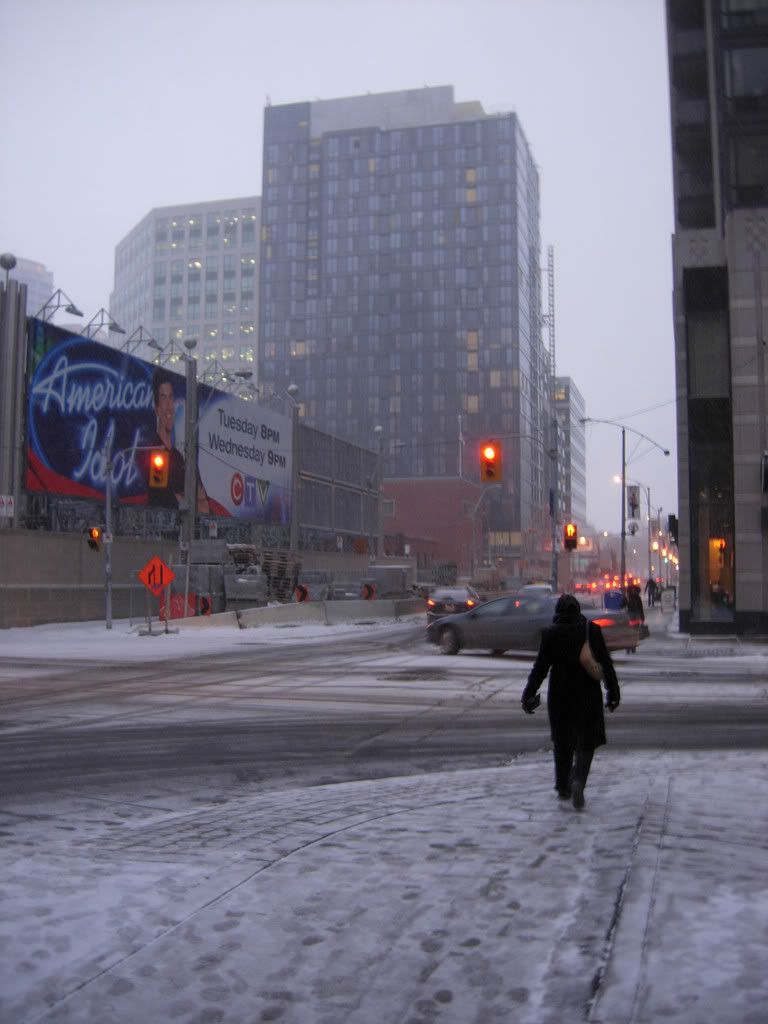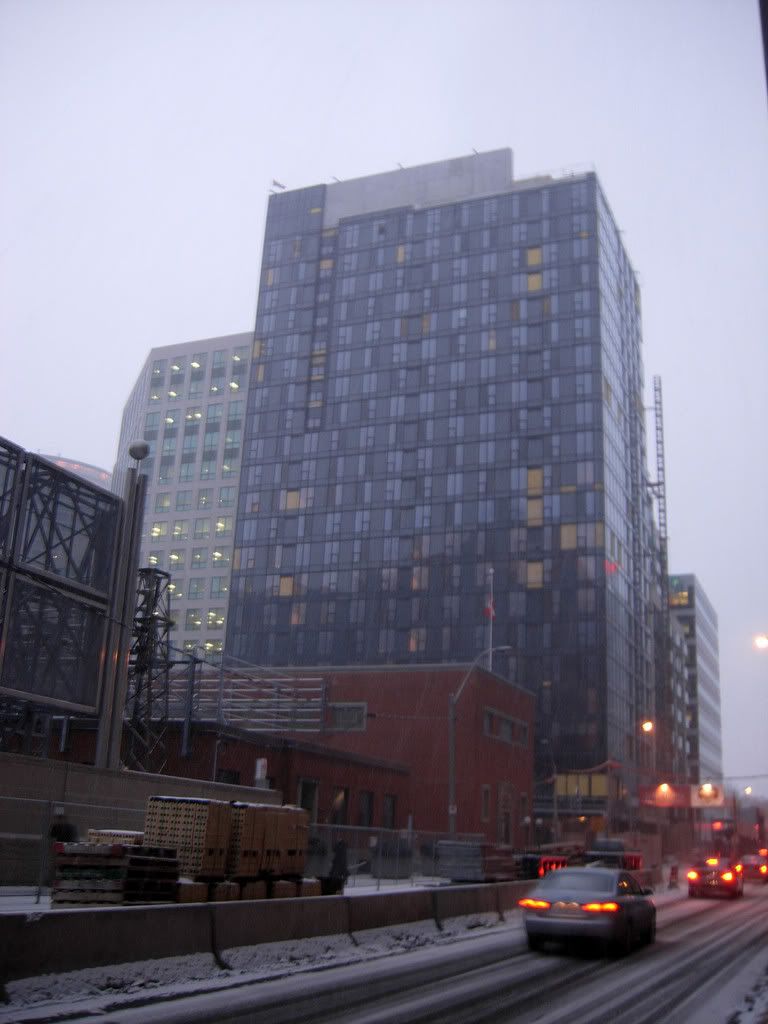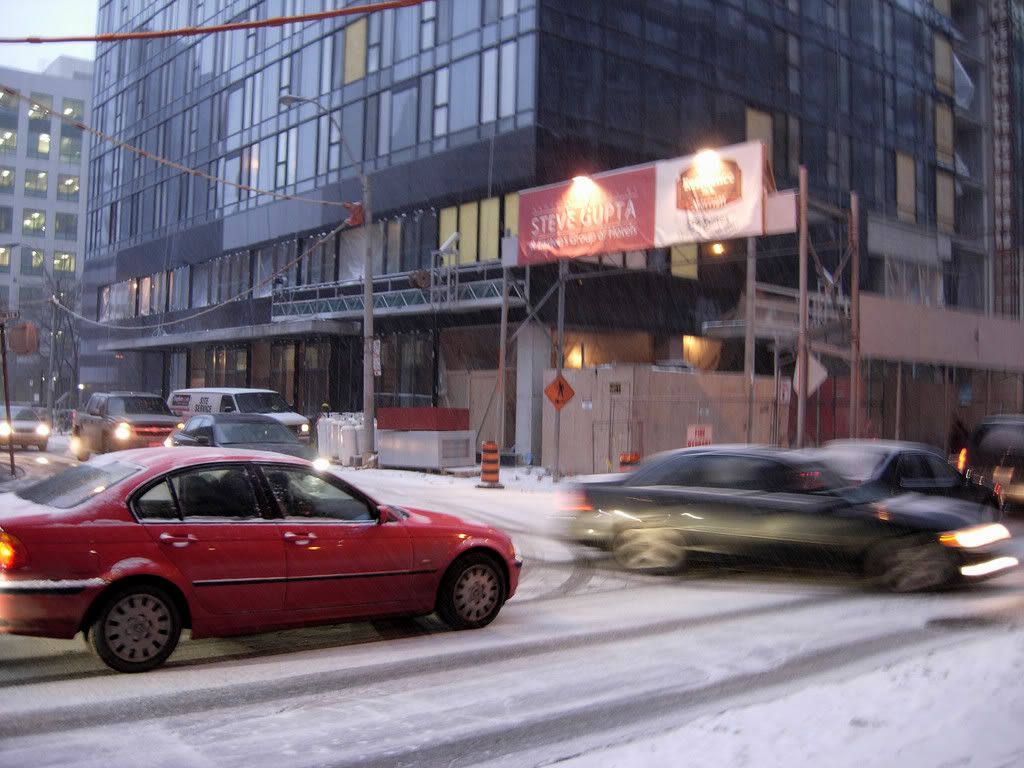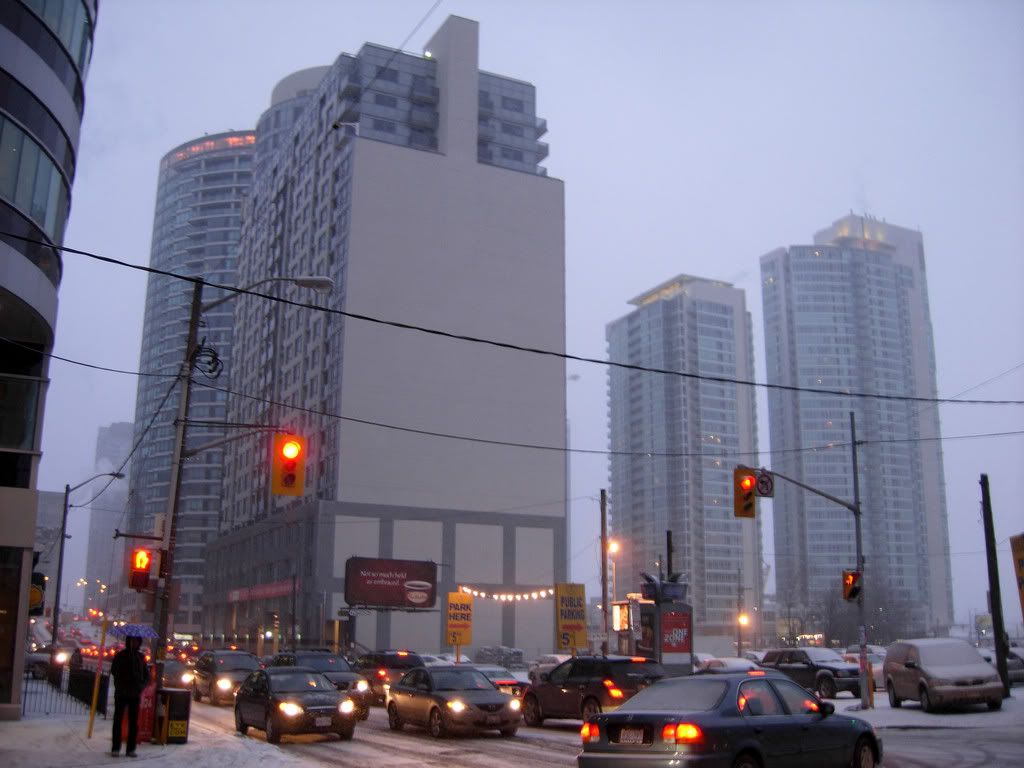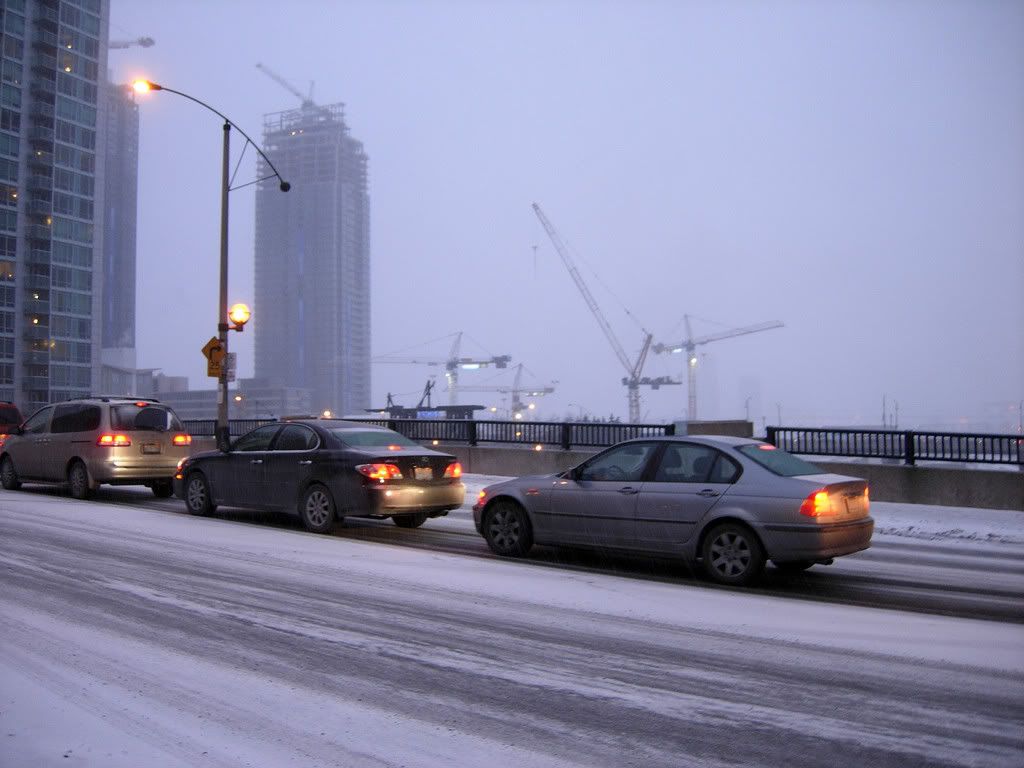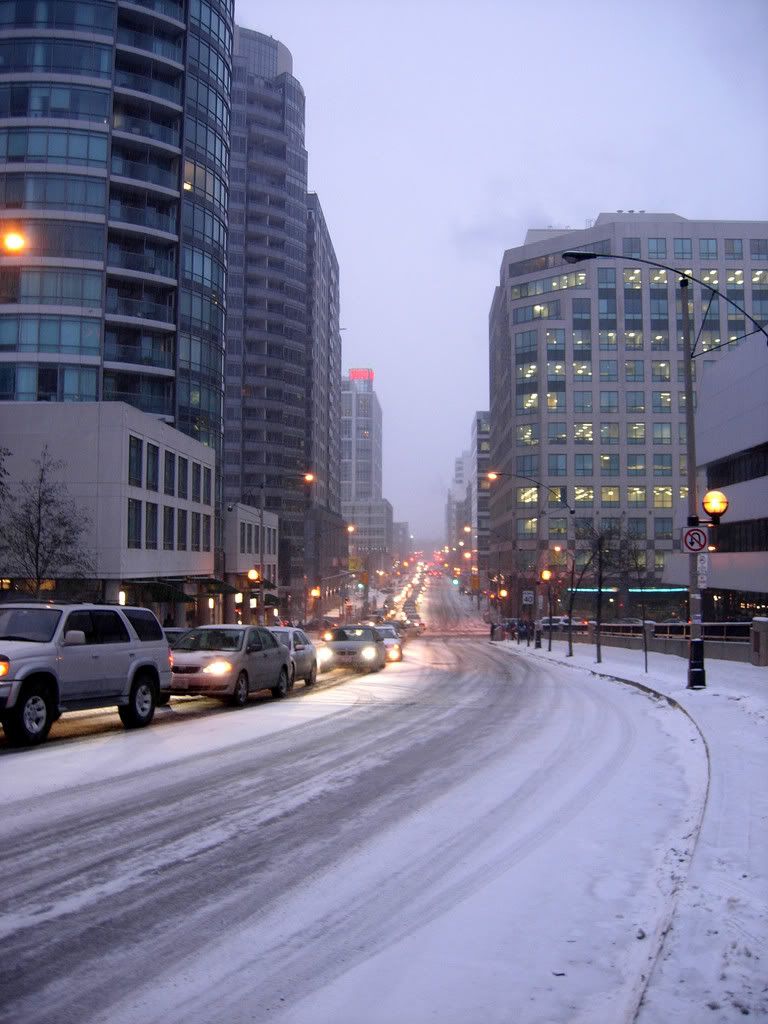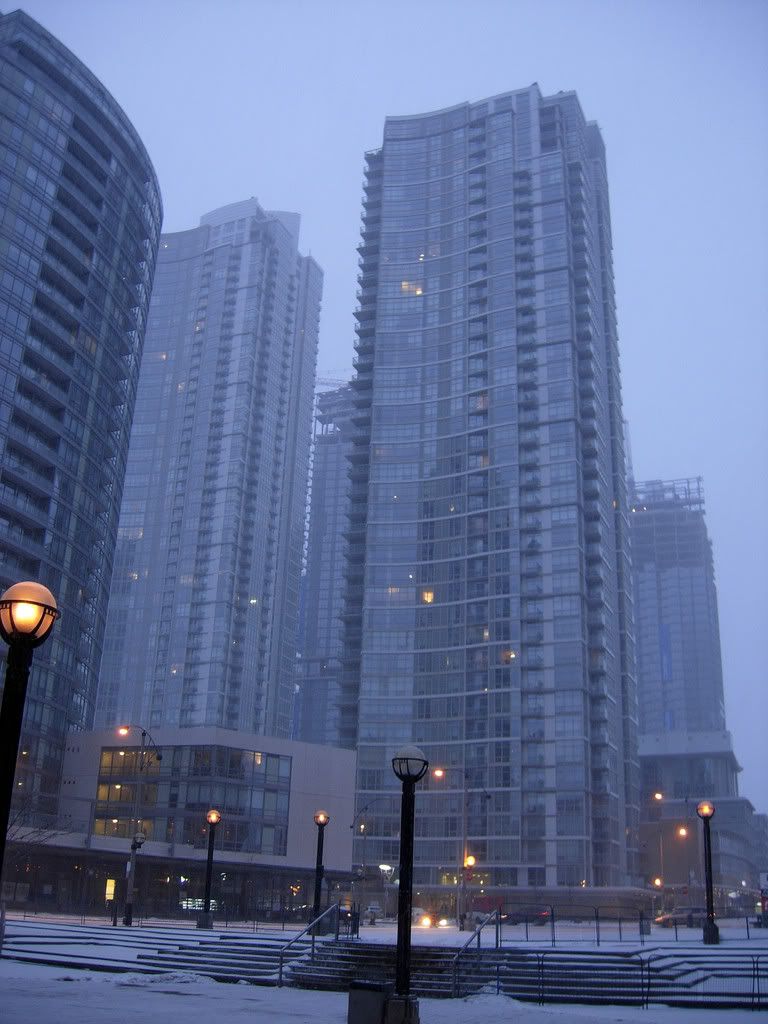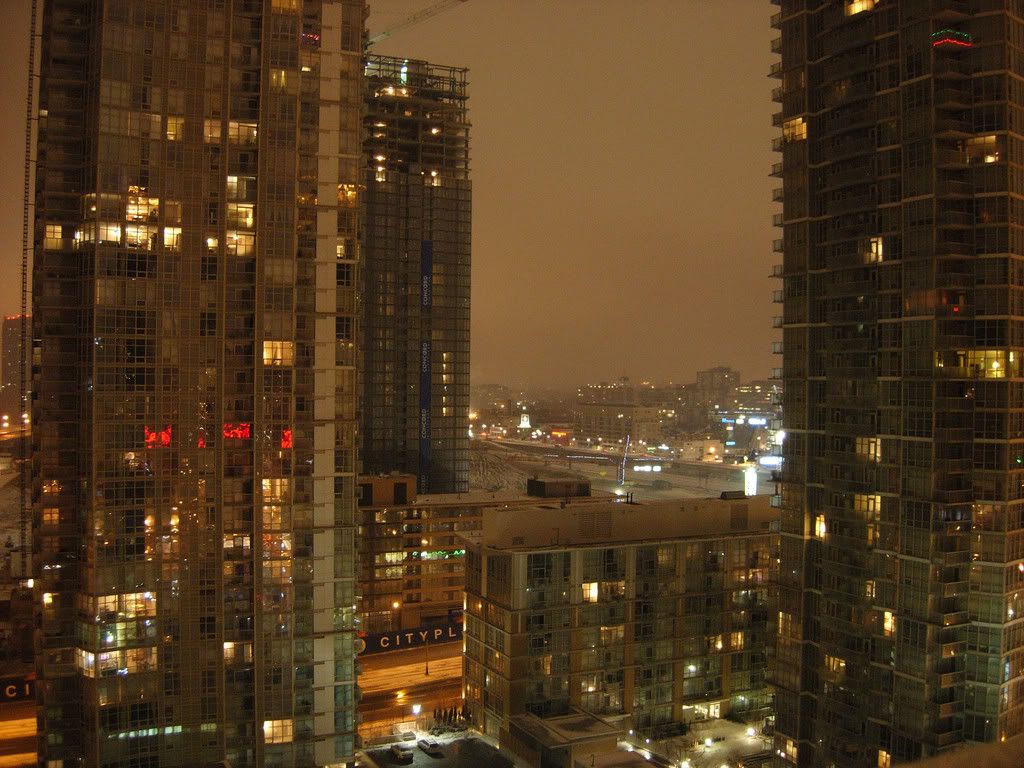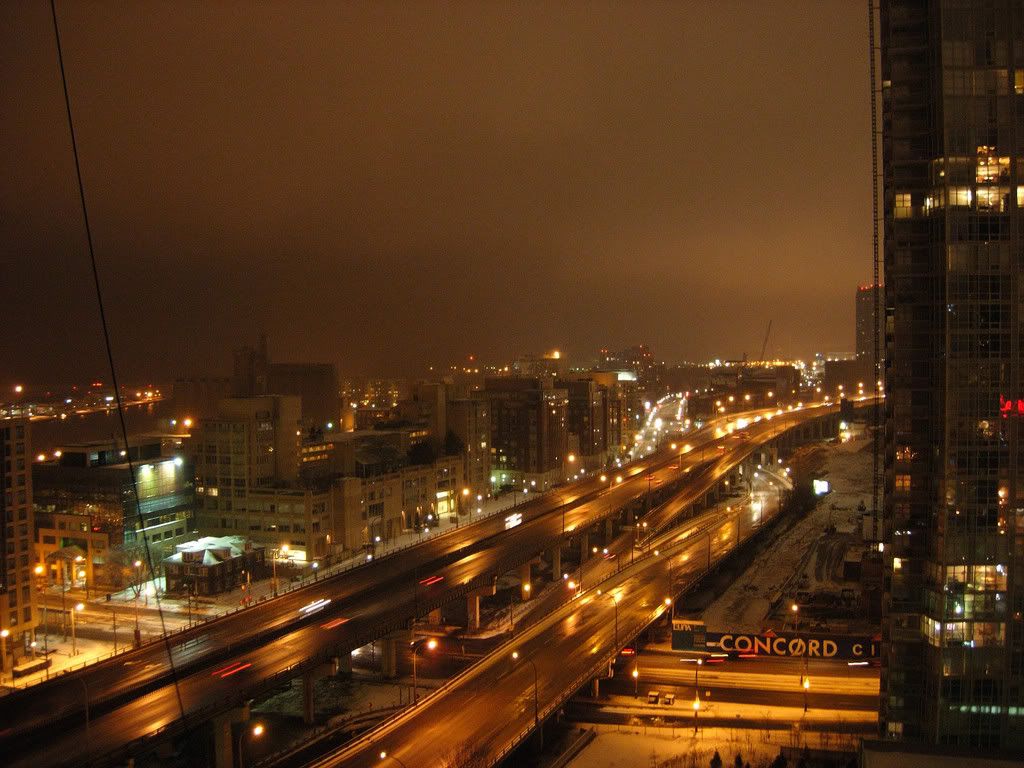Re: New Marriott
Hotelier keeps families in mind
TheStar.com - Unassigned - Hotelier keeps families in mind
Developer aims to serve mid-range travellers in the downtown core
March 29, 2007
Prithi Yelaja
Staff Reporter
When hotelier Steve Gupta sets his mind on something, nothing stands in his way.
Not an elusive Ferrari-driving landowner reluctant to sell a parking lot where Gupta wants to build. Not the city's height or zoning rules. Not even the high commercial taxes and hefty land prices that deter others from setting up a family-friendly hostelry downtown.
In a downtown skyline set to be crowded with five-star establishments like the Ritz-Carlton, the Trump Tower and other condo/hotel projects, Gupta saw a gap: mid-service, suite-style hotels – meaning no fancy amenities like 24-hour room service or bellhops, but fully equipped units with kitchenettes catering to vacationing families and long-stay customers.
So bullish is he on the core that he's opening two new hotels there – a 256-suite Marriott within walking distance of the CN Tower next month, and a 224-room Hilton in the Entertainment District next year.
"People told me I was crazy. But I never take no for an answer. Just because no one else has done it, doesn't mean I can't," says Gupta, 56, founder and CEO of the $350 million Easton's Group of Companies.
"No one is building mid-range downtown – either you have rundown dumps or high-end hotels. There's nothing in the middle, and that's the key."
Joel Baum, a hotel industry expert and professor of strategic management at the U of T's Rotman School of Management, calls Gupta's venture "a neat proposition."
"If nobody else is brave enough to do it, he's not going to run up against a whole bunch of rivals who are doing the same thing. It pre-empts anybody else copying him," says Baum.
"Anything that increases people in the core of this city is fabulous. When you go to American cities, with a few exceptions, there aren't people in the city core. While it makes it a little more congested and harder to get to work, it also makes the downtown real value-added, so I'd rather see his hotels here than out there in the suburbs beside a Wal-Mart."
It might seem the core is becoming packed with new hotels – the high-end Soho is just down Wellington St. W. from Gupta's Marriott – but they serve different niche markets, says Baum, pointing to the example of Manhattan's five-star Waldorf-Astoria, directly across from the budget-priced Hotel Beverly.
"They exist in harmony and, in most cases, ignorance of one another. Different hotels offer different kinds of features."
Not that Gupta's new hotel is devoid of luxury. Each suite has four stainless-steel appliances, black granite countertops from India, bedspreads and curtains made of Swiss and Turkish fabric, Italian marble bathrooms, a $1,000 mattress and 300-count Egyptian cotton sheets, approved only after Gupta tried them at home. He likes to be hands-on.
Gupta replaced the squared-off counters planned for each room with curved ones – at an extra cost of $500 each – for a more pleasing look.
"These small details make all the difference. We want the customer to feel good. I put my heart and soul into every project," he says, during a recent tour of the property.
He spotted the parking-lot site while driving in the area after a Leafs game one night. Gupta tracked down the owner, reputedly the nephew of late Yugoslavian dictator Slobodan Milosevic, and literally chased him all over Toronto before persuading him to sell it.
City planners gave him permission to build only 22 storeys, though he'd asked for almost double that. Gupta's consultants advised against the plan, citing land costs and a tax rate almost double that of Vaughan, Brampton or Mississauga.
The same numbers have sent most mid-priced hotel construction to the suburbs, where the number of available rooms has been growing by about 2.9 per cent a year compared with 1.6 per cent downtown, according to Colliers International Hotel Realty.
"For the same money, I could have built four hotels in the 905. But I really believe in a vibrant downtown. I want to make it pop. Besides, the 905 is getting too crowded," Gupta says with a chuckle.
He recalls that some tried to dissuade him from his first downtown project, too: the 150-room Comfort Suites on Jarvis St., which he dressed up in 1997 with marble touches and limestone cladding when the neighbourhood was still considered a seedy part of town.
Gupta bought the derelict property – a former RCMP headquarters that 57 other developers had considered and rejected – for $950,000. Thanks to the neighbourhood's gentrification, it's worth several times that today.
"I always believed Jarvis St. was going to rebound. After all, it's named after the first mayor of Toronto," says Gupta, who has garnered a variety of hotelier awards.
Chris Phibbs, senior adviser to Mayor David Miller, says Gupta has a gutsy vision for downtown that's family-inclusive.
"He's a dream to work with, from a city perspective. He transformed that corner," she says of the Comfort Suites.
Since arriving in Toronto in 1971, a 20-year-old immigrant from India with $108 in his pocket, Gupta has built an impressive record of seizing opportunities others missed.
After working in a factory and then as an insurance agent, he bought a Port Hope gas station that became a hub for hungry drivers on the 401, housing the first Swiss Chalet and Harvey's outlets on a Canadian motorway. Convincing franchisers the model would work wasn't easy, but Gupta did it.
He used the profits to help finance his $210 million purchase, together with partners, of 5,627 Cadillac Fairview apartment units in 1986. Gupta figures he's bought and sold $1 billion in real estate since then.
Late one evening recently, he dropped in to check the progress on the Marriott. At 11 p.m. workmen were still there, doing double shifts, to get it finished for the April 19 grand opening.
This is the third hotel Gupta is building under the Marriott banner (the others are in Mississauga and Brampton), and he's in talks to construct four more. The Hilton will be his second for that brand name.
"We're careful with people we allow to use our name. What I find with Steve is he underpromises and overdelivers," says Michael Beckley, vice-president of development for Marriott International, which is building the Ritz-Carlton in Toronto.
"People's expectations are generally driven by their world travels, and Steve's hotels have that `wow' factor about them. I think he's going to hit the ball out of the park on this one."
Gupta estimates occupancy will be more than 80 per cent. He plans to donate $1 a day from every occupied room – as much as $100,000 a year – to St. Michael's Hospital.
"I think my hunch was right," he says, "and in a few months, I'll know."
